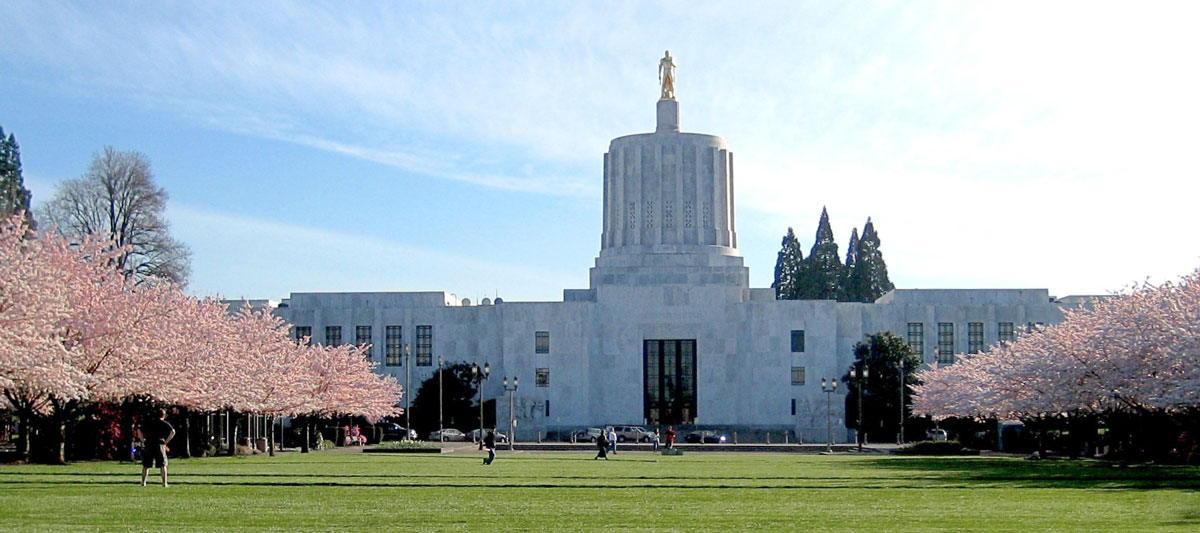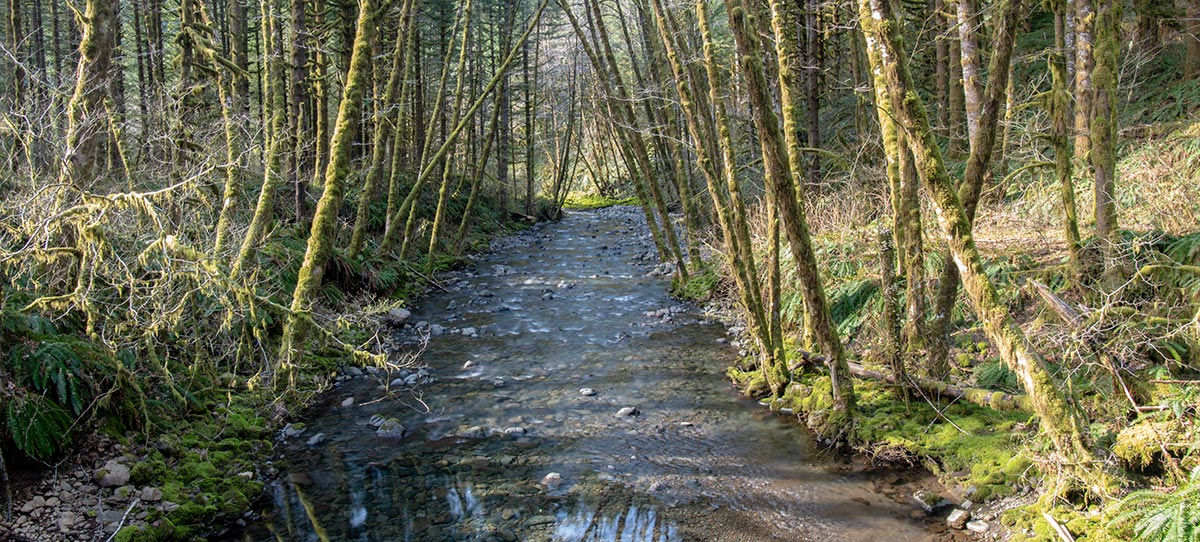Introduction
A brief history of Oregon forest laws
The full set of laws regulating forest management practices on state and private forestland in Oregon is known as The Oregon Forest Practices Act (OFPA). The OFPA gives authorization to the Oregon Board of Forestry to create rules that relate to forest management, firefighting and environmental protections.
The Oregon Legislature passed the Oregon Forest Practices Act in 1971, and it was signed into law by Gov. Tom McCall. It was the first law of its kind in the nation.
Changes over time
Today, the Act has changed and expanded many times, as it was designed to change with improved understanding of forest ecosystems, new scientific data and updated forest management practices. Since its introduction, the Oregon Forest Practices Act and its rules have been amended more than 30 times.

How are new forest laws created?
New forest laws are either created through a legislative vote, followed by approval by the governor, or through the ballot initiative process. If approved by voters, ballot initiatives can establish, amend or repeal provisions in Oregon law.
How are new forest rules changed or created?
The Oregon Forest Practices Act (OFPA) sets requirements for all commercial activities involving the establishment, management or harvesting of trees on Oregon’s state or private forestland.
To comply with these requirements, a set of practical rules needs to be developed. Oregon law gives the Oregon Board of Forestry primary responsibility to interpret the OFPA and set rules for forest practices. Periodically, the Board of Forestry will consider changes to the rules of the OFPA. In a process that incorporates public input, the Board of Forestry approves new, detailed rules to implement the Act’s requirements.
How are forest rules enforced?
The Oregon Department of Forestry is responsible for enforcing the rules established through the Oregon Forest Practices Act by:
- reviewing operations plans for forestry work such as logging, forest road construction and chemical use
- overseeing logging and other forestry operations
- ensuring reforestation after logging
- investigating complaints of potential violations of the Act
- coordinating with other agencies affecting forest operations
- enforcing fines and other corrective actions when violations occur

Recent changes from the Private Forest Accord
In early 2020, prior to the formal negotiations of what is now known as the Private Forest Accord, the Oregon Legislature passed a bill (SB 1602) jointly recommended by representatives of the timber industry and the conservation community that made some immediate changes to the Oregon Forest Practices Act, related to protecting streams and helicopter pesticide application and notification.
Then in 2022, with guidance provided by a signed Private Forest Accord agreement between representatives from Oregon’s timber industry, the state’s largest woodland owner organization and prominent conservation and fishing organizations, the Oregon Legislature passed three new bills that mandated changes to the Oregon Forest Practices Act. Most of the rules and programs developed as a result of the Private Forest Accord and legislative action will roll out in 2023 and 2024.
Additional rules will be developed in the coming years, including the introduction of an adaptive management framework that will change the way forest-related science is requested by and presented to the Board of Forestry.
 Oregon Forest Laws
Oregon Forest Laws